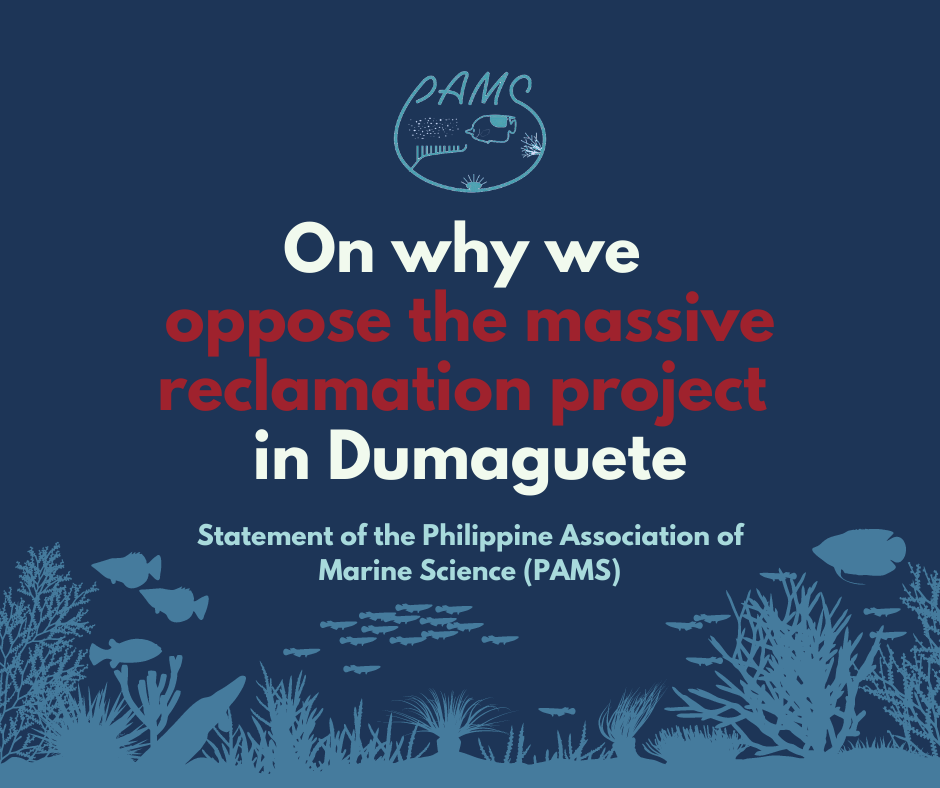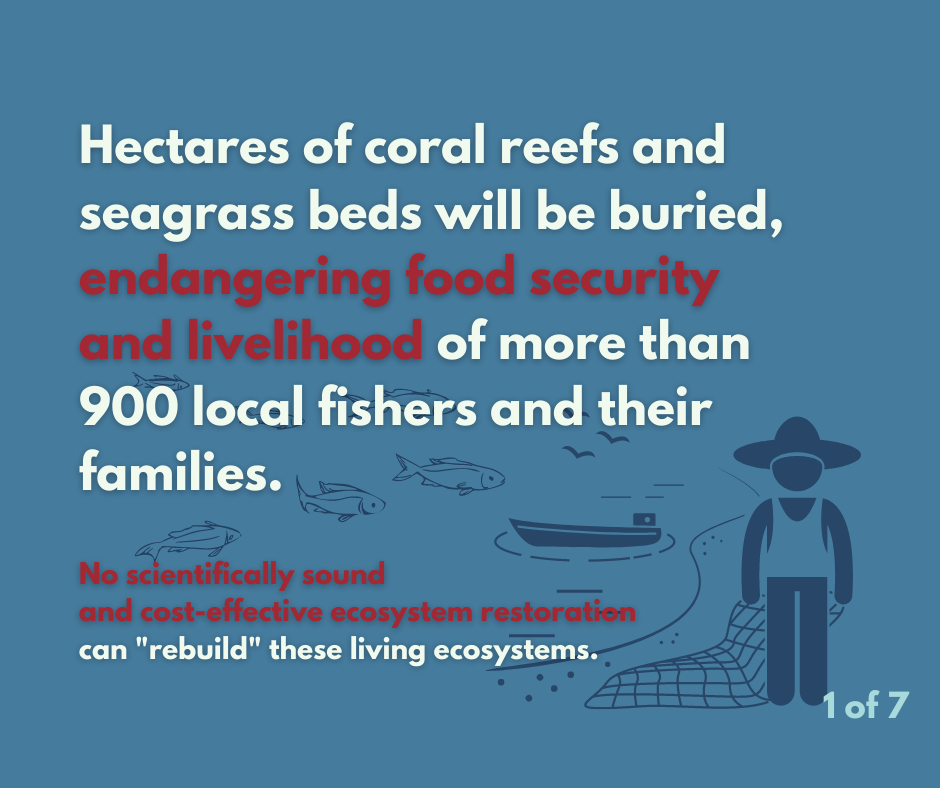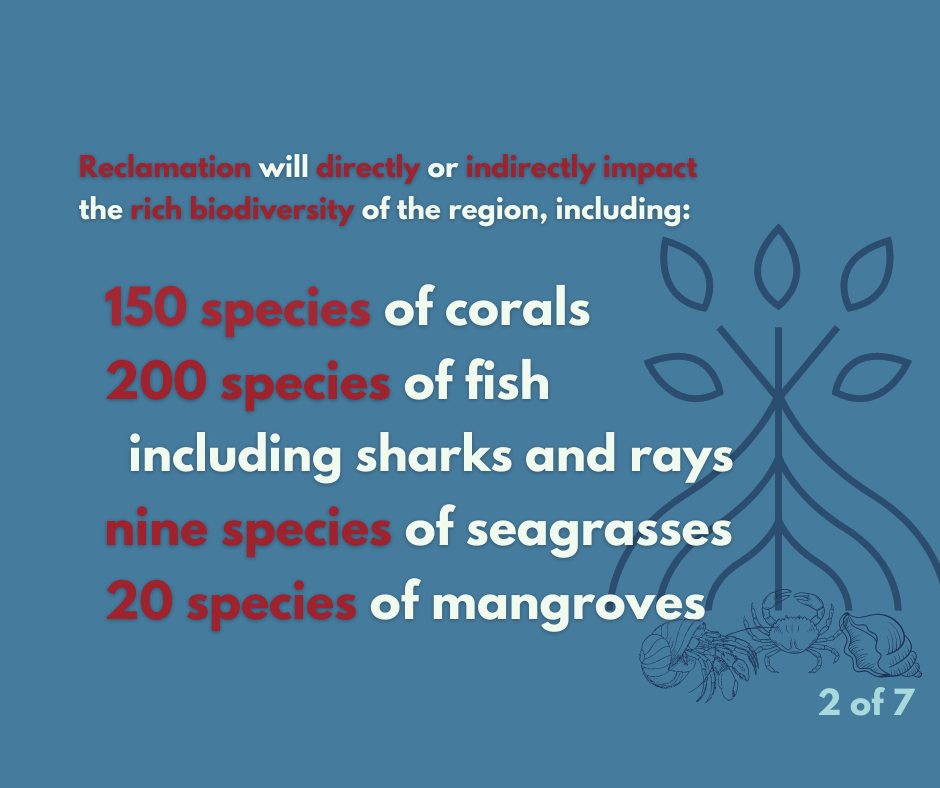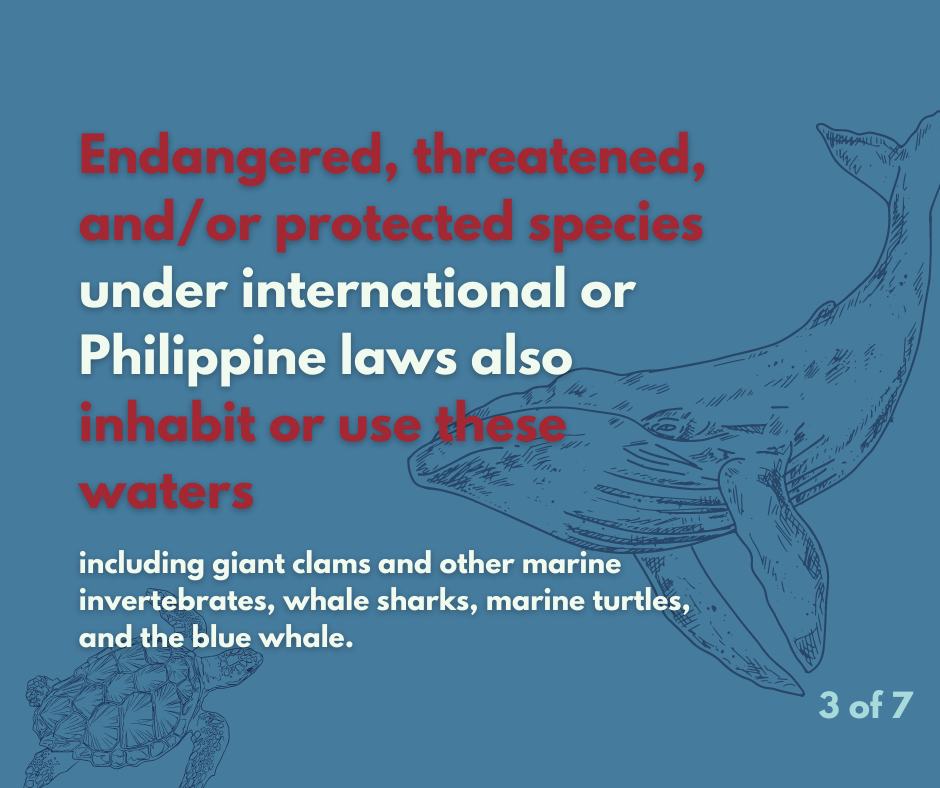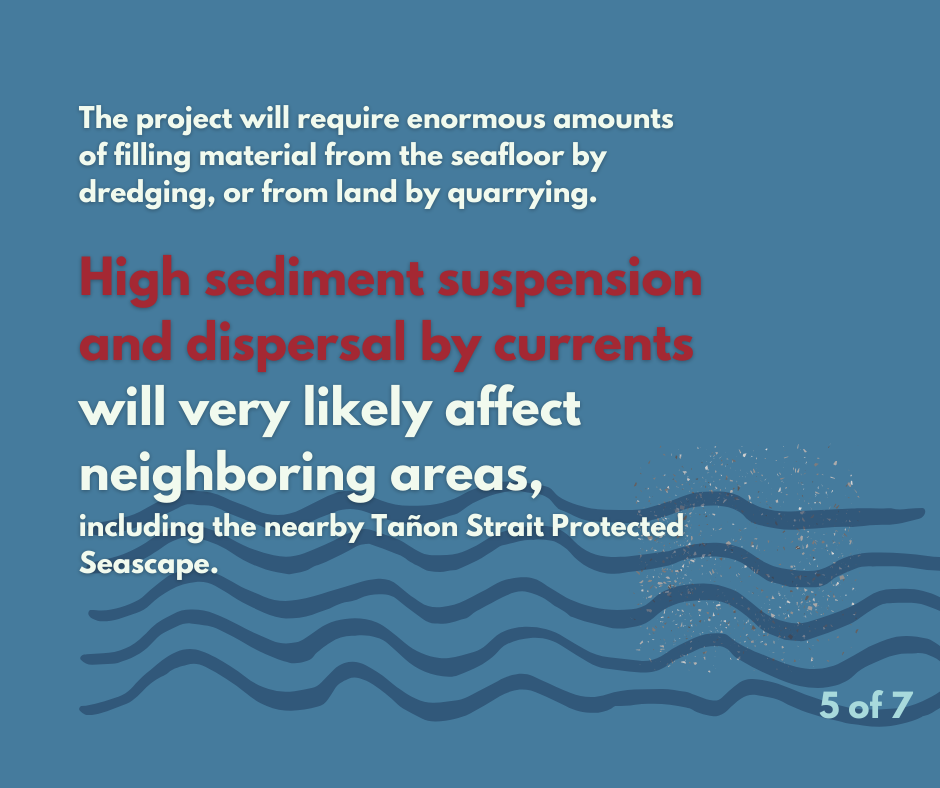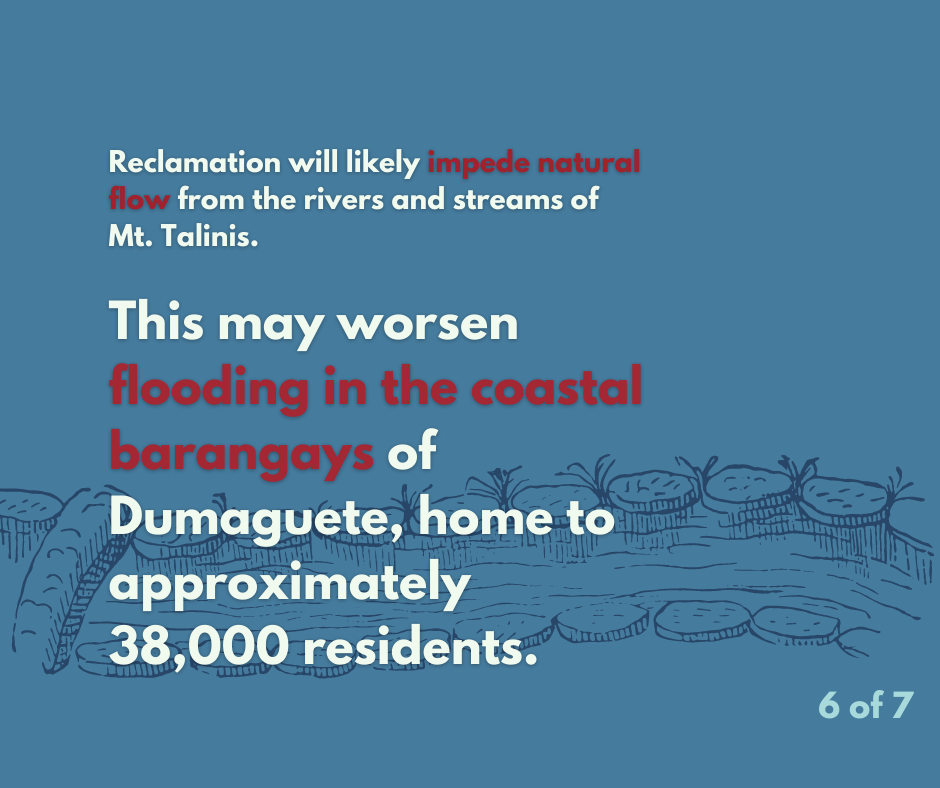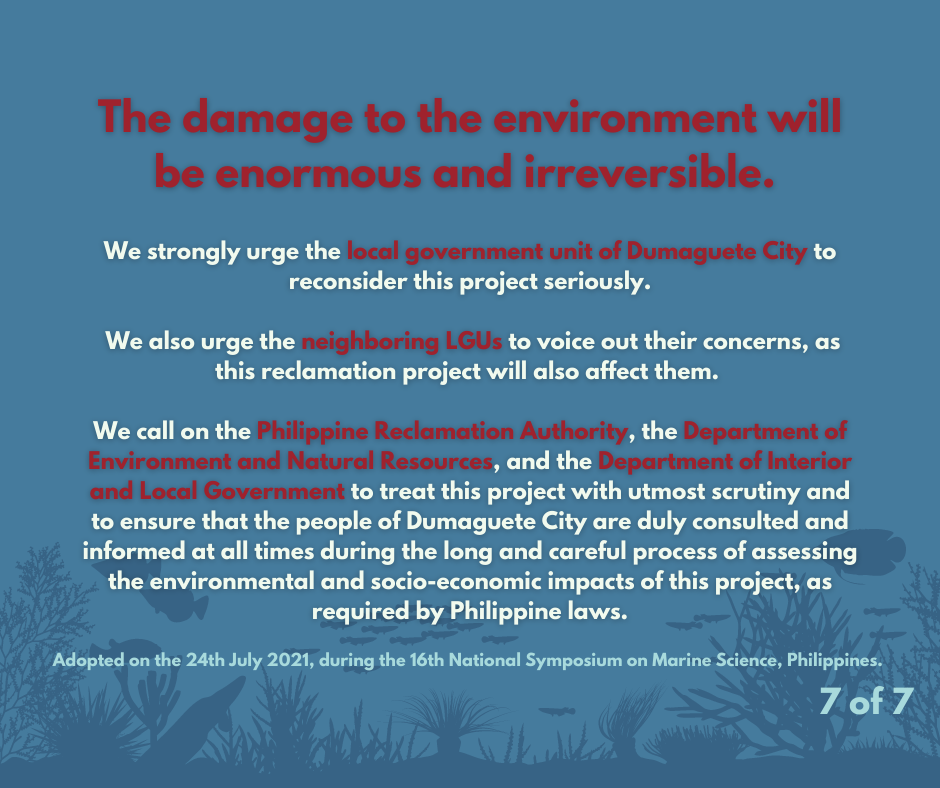Land reclamation, human rights & nature’s rights
Land reclamation is one of the key drivers of sand mining across the world. The human and environmental cost of this activity is enormous.
10 Civil Society Organisations have come together to call upon the Dutch government not to support destructive land reclamation in Manila Bay, Philippines. ‘New Manila International Airport violates human rights and threatens a wetland of international importance.’ Notwithstanding the context of rising seas and the climate emergency, mangrove forests have been cleared without permission. This project threatens a wetland that is of high importance to migratory birds that are coming from as far as Siberia and Alaska. Residents have been coerced by the military to self-destruct their homes and move out to qualify for compensation. Stakeholder consultations have been stymied by Non-Disclosure Agreements. The contract has an estimated value of €1.5 billion. The land development is expected to be finalised by 2024.
Another reclamation project in the country -“Smart City” Reclamation Project is being planned near Dumaguete City, Negros Oriental. The Philippine Association of Marine Science, composed of more than 200 members from over 45 leading Philippine and overseas universities, government agencies, and non-government organizations has opposed the 174 hectare (approximately 7 km long) reclamation project. The National Academy of Science and Technology, Philippines, the country’s highest advisory body on science and technology too has issued a statement against the project. This project will bury huge swathes of ‘productive coral reefs and seagrass beds (45-67 hectares or more), which will endanger the food security and livelihoods of more than 900 local fisherfolk and their families.’ ‘The waters of Dumaguete host at least 150 species of corals, 200 species of fish, including sharks and rays, nine species of seagrass, and 20 species of mangroves.’ ‘Four marine protected areas (MPAs) will cease to exist.’
A UNESCO Biosphere reserve is set to be dredged in order to create 231 hectares of land. ‘Addu Atoll is the southernmost atoll in the Maldives archipelago. Currently, it is under threat of environmental destruction due to the interests of big business…The project will dredge almost all available sand within the atoll basin created over thousands of years from living organisms.’ Unlike sand in other places, the sand in the Maldives is formed from the action of living organisms such as parrotfish. Local activists have launched a campaign to #SaveAddu Biosphere Reserve.
Meanwhile, in Malaysia, protests that began against the Penang South Reclamation (now Penang South Islands) over two years ago are still continuing. The size of the proposed reclamation in question involves 4,500 acres of environmentally sensitive areas. 189 million cubic metres, equivalent to 76,000 Olympic sized swimming pools of sand and rock material will be dredged from sensitive ecosystems and dumped on others. This project stands to destroy landing sites for vulnerable and endangered species such as the Green Turtle and the Olive Ridley Turtle among others. ‘Many Penangites and local civil society organisations have called for the project to be cancelled, raising concerns over how the reclamation will destroy the richest fishery in Penang, negatively affect the livelihoods of 4,817 inshore fishermen, but also saying that the Penang government has not been transparent about the project.’ The project is being pushed through despite the Environmental Impact Assessment (EIA) clearly stating significant dangers. In this video on Twitter, Dr Lim Mah Hui from the Penang Forum quotes chapter 7, p.158 of the 1000 page EIA report: ‘The nature of reclamation is such that it is expected to lead to an irreversible change in the area to be reclaimed. The original physical, biological resources and productivity of the reclamation footprint would be lost permanently.’ To add insult to injury, the project has been named ‘BiodiverCity’! Each island is supposedly ‘modelled on the form of a lilypad’ and will be composed of ‘mixed-use districts’, ‘public beaches’, ‘parks’ and ‘waterfront’ real estate.
Regardless of the PR spin, land reclamation that destroys the habitat of wildlife and infringes upon the lives, livelihoods and dignity of local people in order to build real estate property for the rich is clearly not sustainable development.
Images Credit: The Philippine Association of Marine Science
